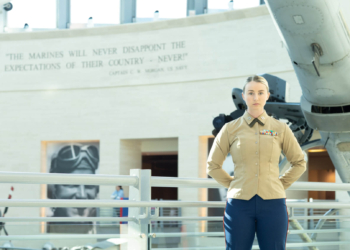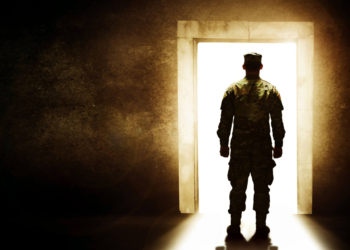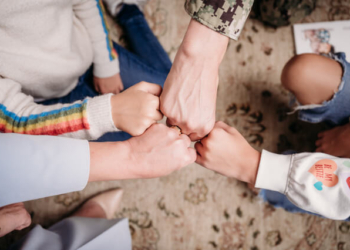Army veteran Chris Gonzalez has experienced what many people don’t realize is possible. He’s had COVID-19 three different times.
The former Military Police officer receives infusions to treat his Crohn’s Disease, which lowers his immune system’s ability to fight infections. He joined the Army in 1996 and served until 2004, when an injury led to his medical discharge.
The private sector job he works in the transportation industry exposes him to many people. He believes that’s how he caught COVID-19 for the first time in March of 2020 during the initial lockdowns.
“(It) was pretty rough. I couldn’t breathe for weeks,” recalled Gonzalez. “The pain in my body, just literally every bit of my muscles were shut down. I was very incoherent, and I didn’t really know what was going on around me for about four or five days.”
He felt fortunate that he didn’t need to go to the hospital for care, but he was sick again with another serious coronavirus case months later. By then, the virus had spurred optimism about the vaccine that would be released to the public.
His wife, Amy, and their seven kids, aged 15 to 26, didn’t feel the same way. Hopeful that he may be able to inspire his family to follow in his footsteps, Gonzalez made a decision about the vaccine.
“I went ahead and got it just to kind of be the first one and show them that there’s not going to be anything wrong with it,” he said, recalling that his loved ones watched closely in the following days to see how he reacted to the shots. “More observing me than anything else, like ‘Oh, is he still alive? Yep, he’s alive.’”
Read: COVID-19 vaccines: What military families need to know
The only side effects Gonzalez experienced were minor fatigue and a sore arm at the injection site. About a month later, his wife and children chose to get vaccinated.
“I didn’t want to push it on them,” he said. “I feel that everybody should have their choice on what they’re doing. But they should also be educated in what they’re doing. There’s a lot of fear out there, and I think education can help control that fear.”
Eight months after receiving his first vaccination, Gonzalez came down with COVID-19 a third time, but the symptoms felt different than his previous experiences.
“After the vaccine, a runny nose happened, and I did lose my sense of smell, but I did still have some taste. My fever didn’t go above 99 degrees, and it broke the first day or so,” Gonzalez said.
As a veteran who has helped active-duty service members transition to life outside the service, he feels he needs to speak up to other people he cares about. He believes active-duty service members must do their research and make a well-informed decision, but he also wants them to consider the risks they face by ending their service due to refusal to get the vaccination.
“When they get out of the service and go into the civilian world, they’re going to realize they’re going to encounter the same type of mandates that they’re seeing in the military,” he said. “My employer has a requirement for it, and I know many other employers do as well. Refusing (the vaccine) in the military is not going to get you away from it eventually. It’s something you’ll have to face at one point or another, so why ruin a military career over it?”

Gonzalez’s loyalty toward the military runs deep. He was inspired to enlist after his grandfather served more than 40 years in the service, joining amid World War II and not retiring until the mid-1980s.
“I always knew that time in the military was something I wanted to do,” said Gonzalez, who hoped to continue serving in the Army for 20 years but was medically retired after eight.
While his own military career was cut short, Gonzalez encourages troops violating the vaccination mandate to think critically about the future.
“We made the decisions that we need to join the military to do right by our country, do right by our neighbors, and everyone else,” he said. “So the same commitment we made when we raised our right hand should almost be the same one we’re making to get the shot.”
Read comments







































